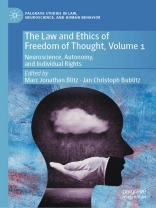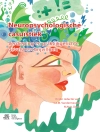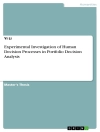Freedom of thought is one of the great and venerable notions of Western thought, often celebrated in philosophical texts – and described as a crucial right in American, European, and International Law, and in that of other jurisdictions. What it means more precisely is, however, anything but clear; surprisingly little writing has been devoted to it. In the past, perhaps, there has been little need for such elaboration. As one Supreme Court Justice stressed, “[f]reedom to think is absolute of its own nature” because even “the most tyrannical government is powerless to control the inward workings of the mind.” But the rise of brain scanning, cognition enhancement, and other emerging technologies make this question a more pressing one. This volume provides an interdisciplinary exploration of how freedom of thought might function as an ethical principle and as a constitutional or human right. It draws on philosophy, legal analysis, history, and reflections on neuroscience and neurotechnology to explore what respect for freedom of thought (or an individual’s cognitive liberty or autonomy) requires.
Innehållsförteckning
1. Freedom of Thought in Political History (Lucas Swaine).- 2. Freedom of Thought: Who, What, and Why? (Simon Mc Carthy-Jones).- 3. Freedom of Thought as an International Human Right: Suggestions for a Theory of a Living Right (Jan Christoph Bublitz).- 4. Freedom of Thought and the Structure of American Constitutional Rights (Marc Jonathan Blitz).- 5. Why Is It Wrong to Punish Thought (Gabriel S. Mendlow).- 6. Autonomy, Evidence-Responsiveness, and the Ethics of Influence (Fay Niker, Gidon Felsen, Saskia K. Nagel & Peter B. Reiner).- 7. The Ethics of Memory Dampening (Adam Kolber).- 8. Cognitive Liberty of the Person with a Psychiatric Disorder (Mari Stenlund).- 9. Technology Against Technology: A Case for Embedding Limits in Neurodevices to Protect Our Freedom of Thought (Andrea Lavazza).- 10. Varieties of (Extended) Thought Manipulation (J. Adam Carter).
Om författaren
Marc Jonathan Blitz is Alan Joseph Bennett Professor of Law at Oklahoma City University, USA. His scholarship and teaching focus on how emerging technologies – such as cognitive enhancement, brain scanning technologies, and virtual and augmented reality – raise questions about freedom of speech, privacy, and other areas of American constitutional law.
Jan Christoph Bublitz is a researcher at the Faculty of Law at Universität Hamburg, Germany. His research focuses on criminal law, legal theory, and human rights law, often with an interdisciplinary twist. He was awarded the Young Scholar Prize of the International Association of Legal and Social Philosophy for studies on the right to freedom of thought.












